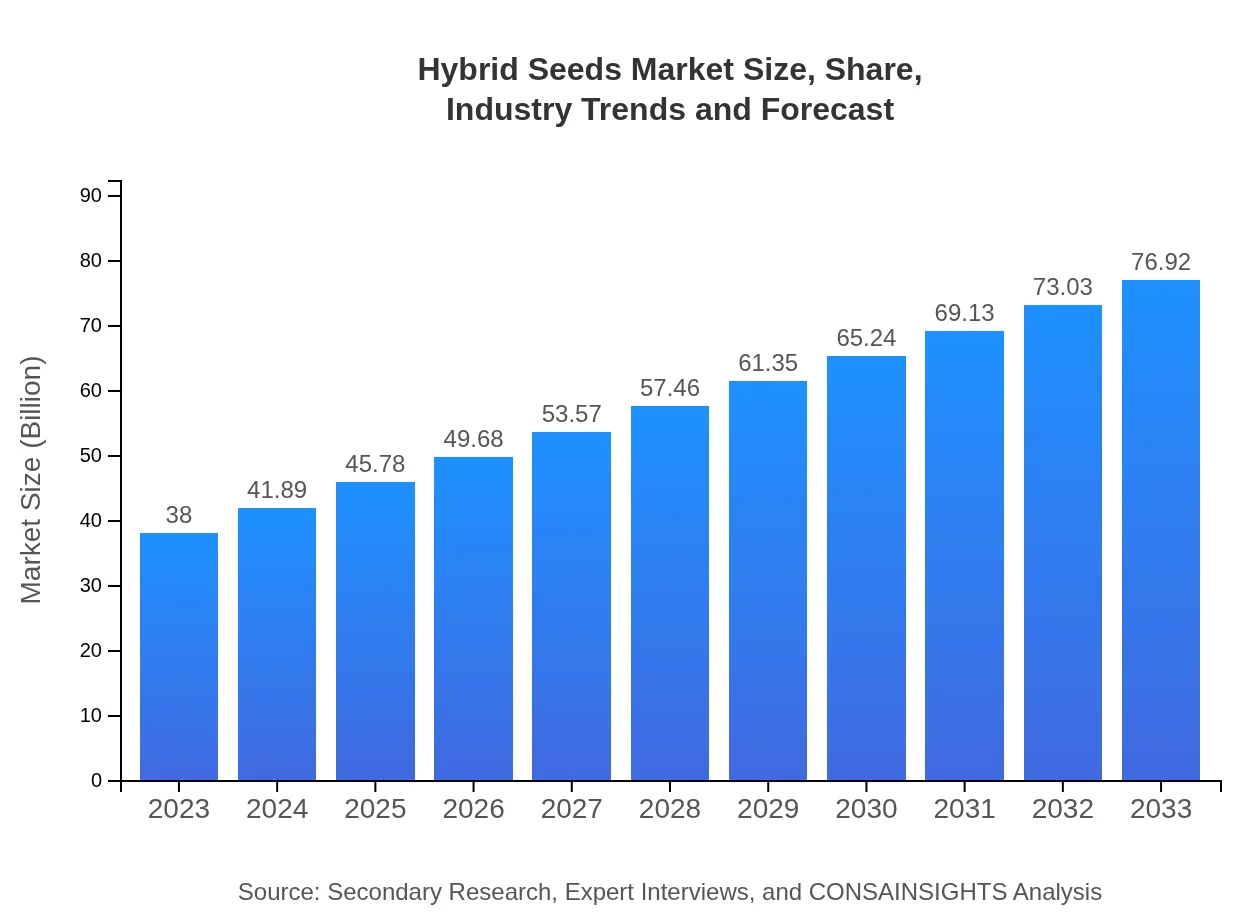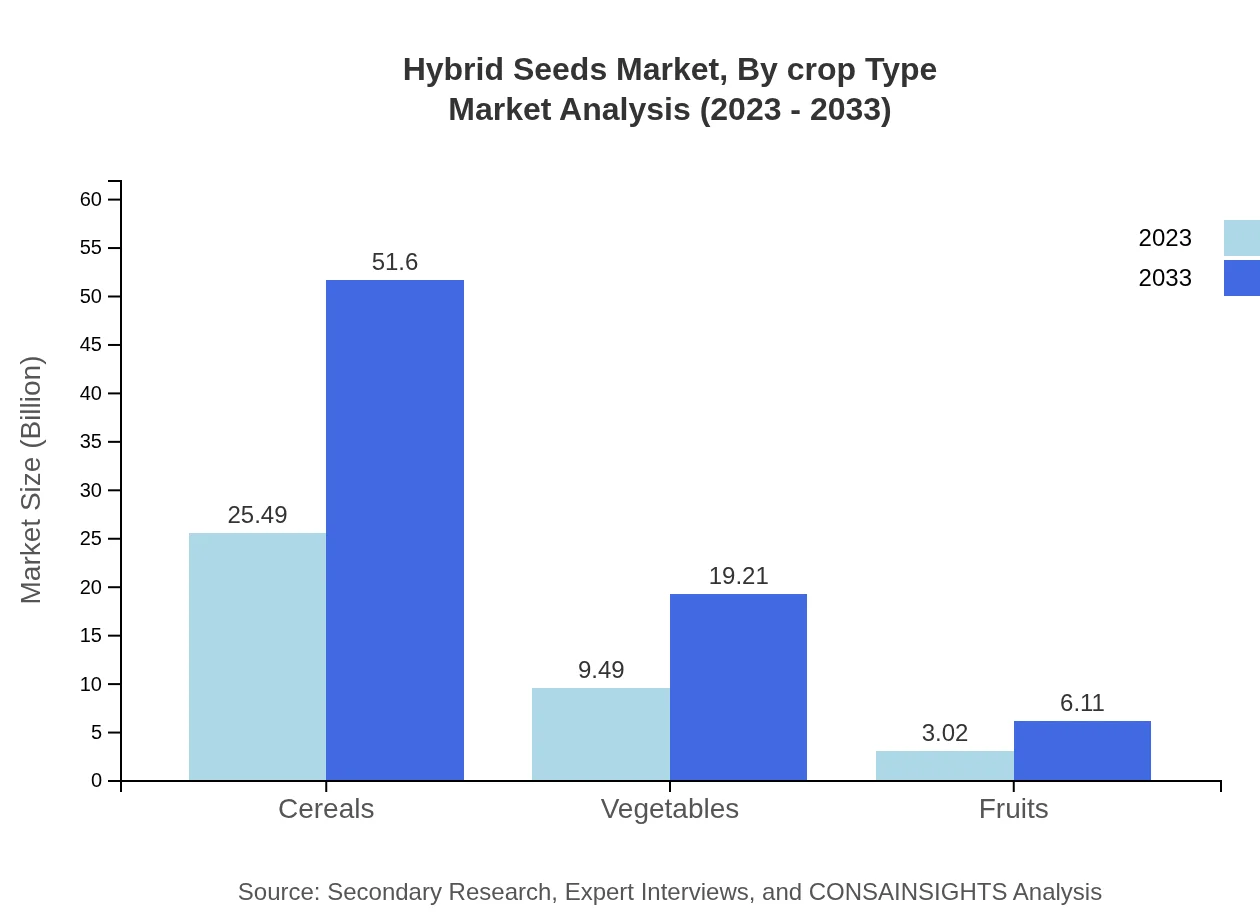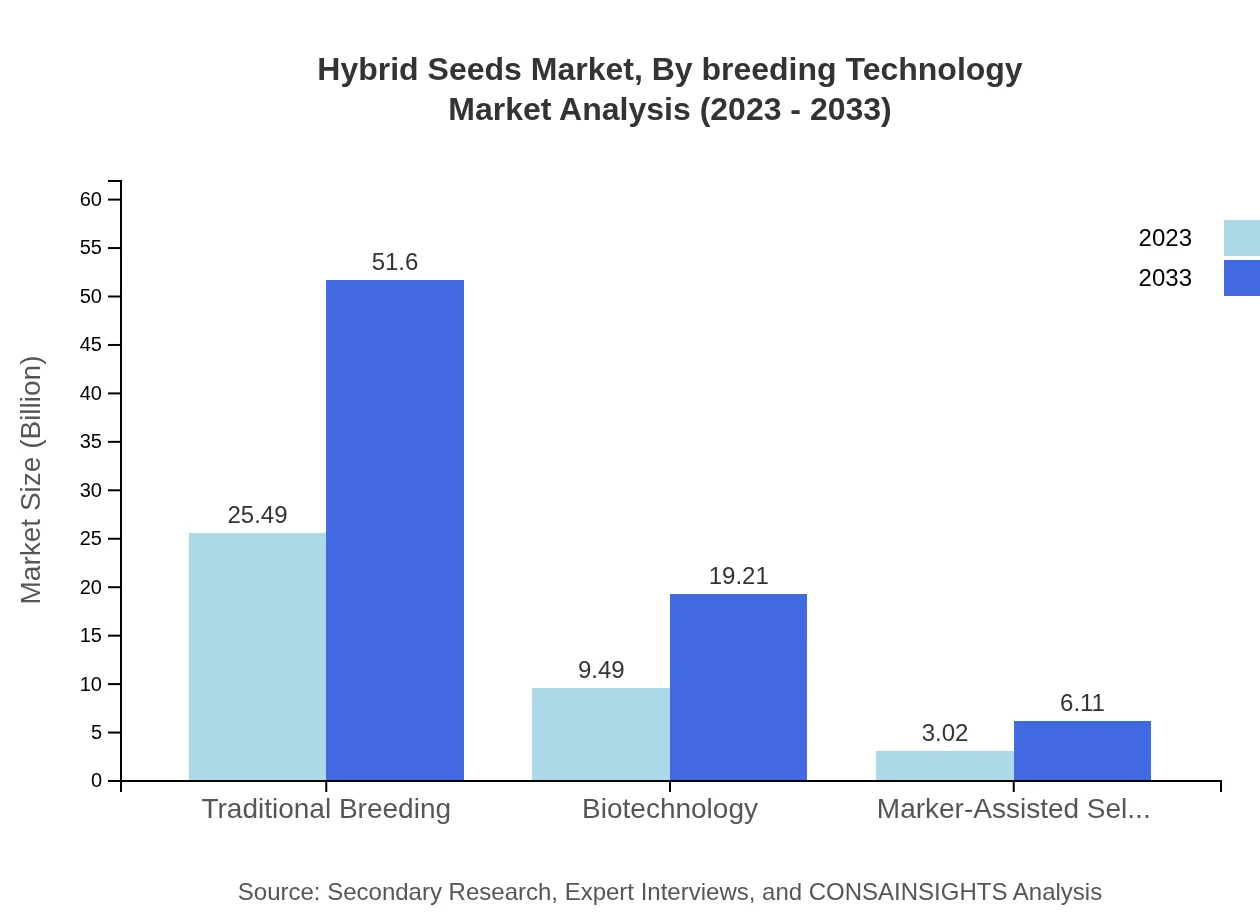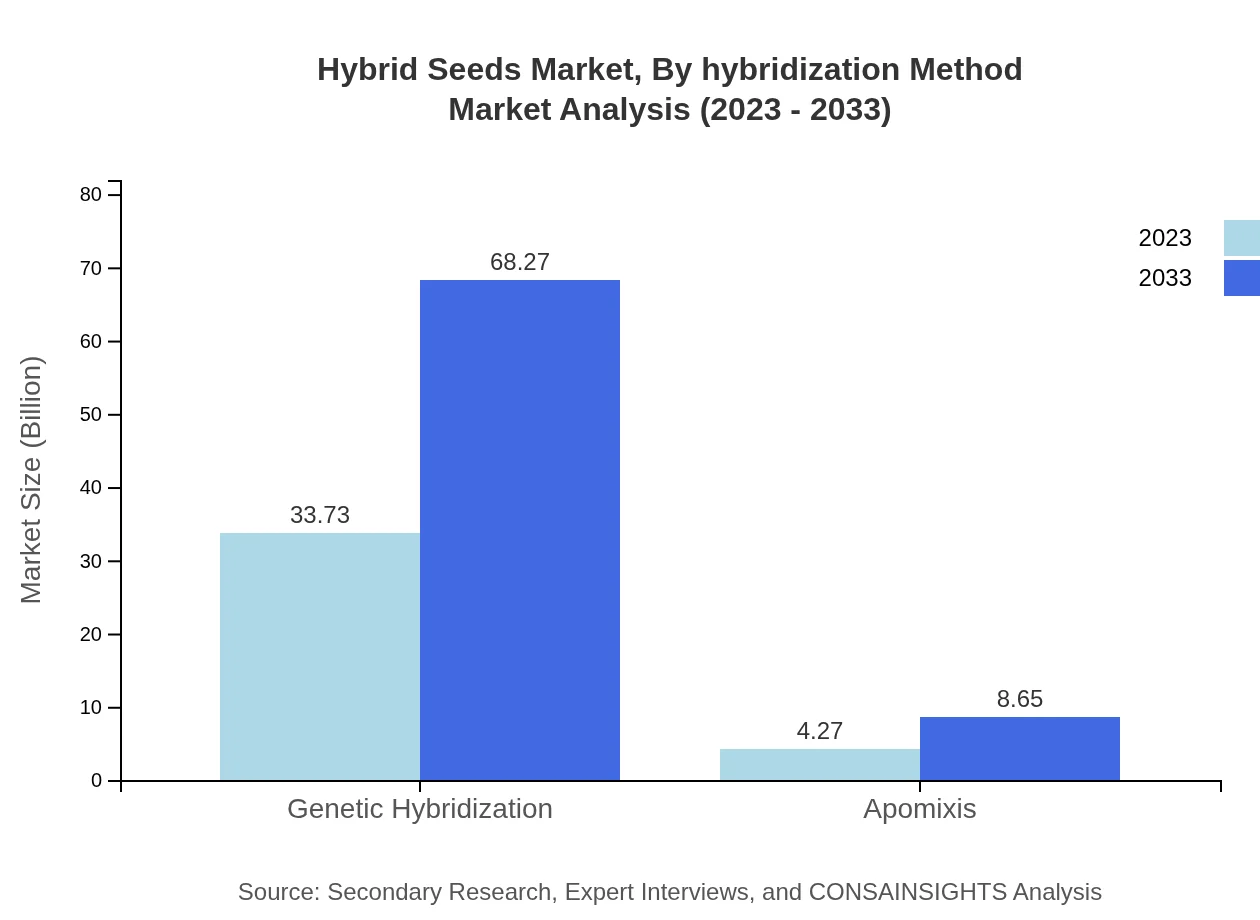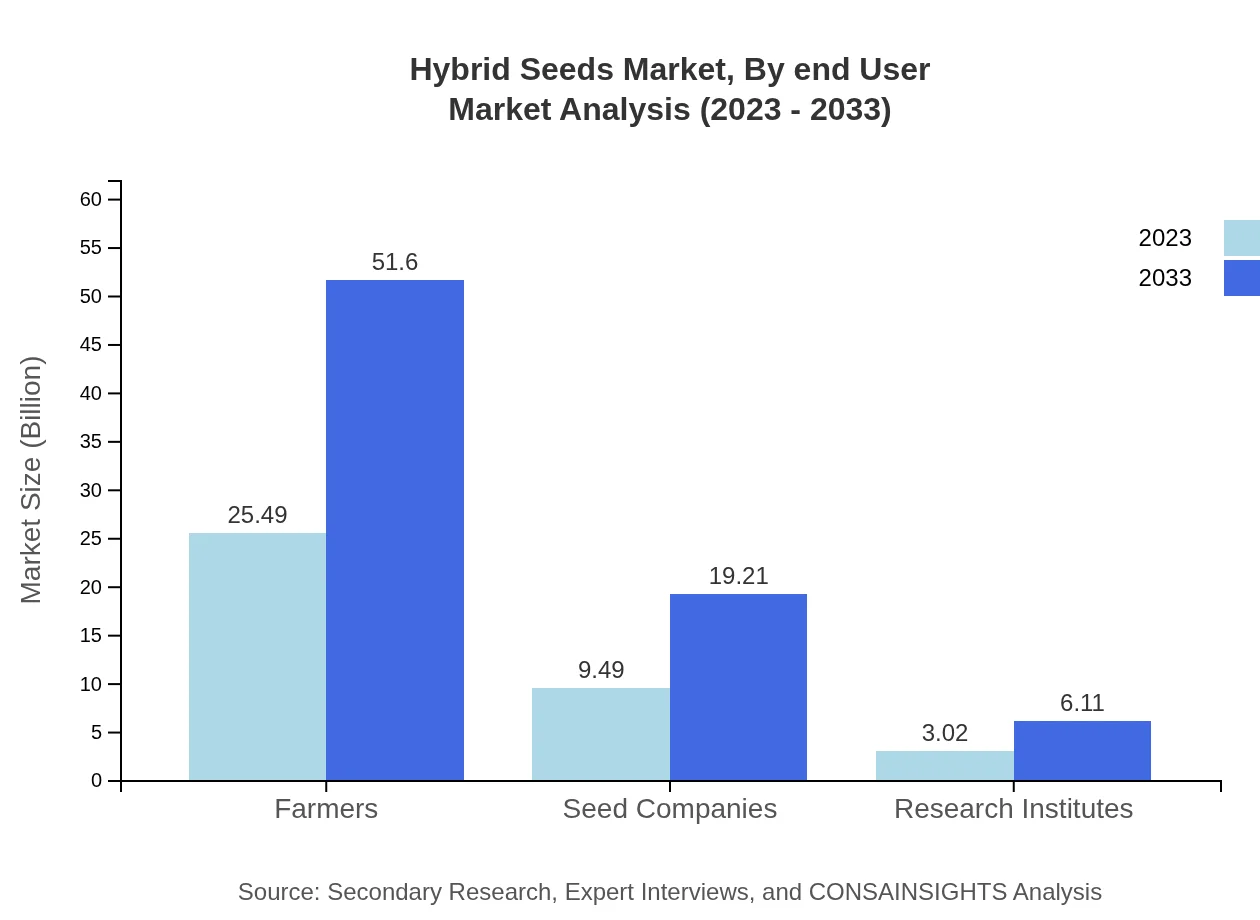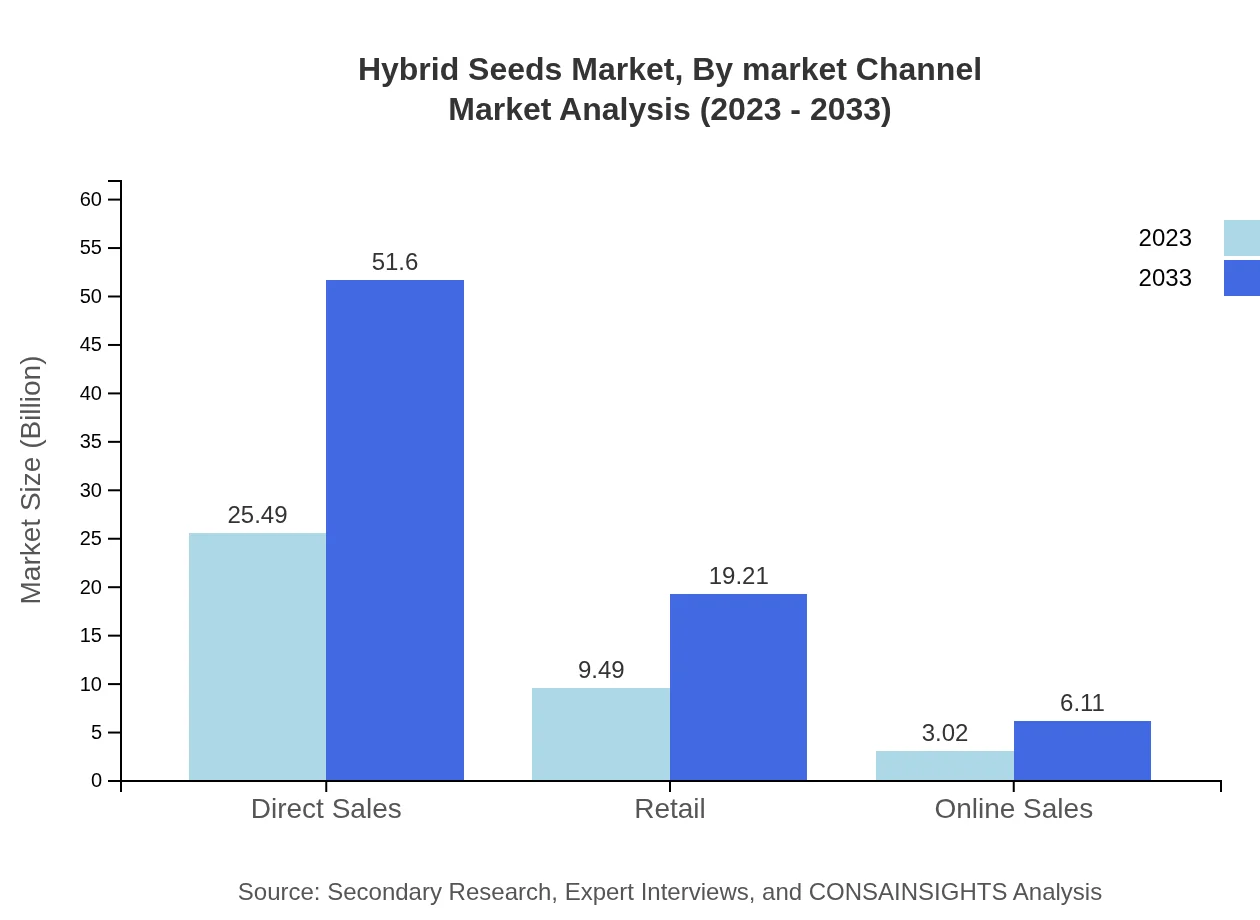Hybrid Seeds Market Report
Published Date: 02 February 2026 | Report Code: hybrid-seeds
Hybrid Seeds Market Size, Share, Industry Trends and Forecast to 2033
This report provides a comprehensive analysis of the Hybrid Seeds market for the forecast period 2023-2033. It includes insights into market size, growth trends, segmentation, regional analysis, technological advancements, and significant players in the industry.
| Metric | Value |
|---|---|
| Study Period | 2023 - 2033 |
| 2023 Market Size | $38.00 Billion |
| CAGR (2023-2033) | 7.1% |
| 2033 Market Size | $76.92 Billion |
| Top Companies | Monsanto (now part of Bayer AG), DuPont Pioneer (now Corteva Agriscience), Syngenta, BASF |
| Last Modified Date | 02 February 2026 |
Hybrid Seeds Market Overview
Customize Hybrid Seeds Market Report market research report
- ✔ Get in-depth analysis of Hybrid Seeds market size, growth, and forecasts.
- ✔ Understand Hybrid Seeds's regional dynamics and industry-specific trends.
- ✔ Identify potential applications, end-user demand, and growth segments in Hybrid Seeds
What is the Market Size & CAGR of Hybrid Seeds market in 2023?
Hybrid Seeds Industry Analysis
Hybrid Seeds Market Segmentation and Scope
Tell us your focus area and get a customized research report.
Hybrid Seeds Market Analysis Report by Region
Europe Hybrid Seeds Market Report:
Europe's hybrid seeds market is valued at $12.35 billion in 2023 and is estimated to grow to $25.01 billion by 2033. The region has strict regulations regarding GMOs, pushing companies to innovate within compliance. Increasing demand for organic seeds and environmental sustainability is shaping the market.Asia Pacific Hybrid Seeds Market Report:
The Asia Pacific region is projected to show significant growth in the hybrid seeds market, moving from a valuation of $6.80 billion in 2023 to approximately $13.76 billion by 2033. Countries such as India and China are at the forefront, driven by the extensive agricultural base and initiatives to boost crop yields. The increasing adoption of improved seed varieties helps mitigate issues related to climate change and food security.North America Hybrid Seeds Market Report:
North America, with a market value of $13.82 billion in 2023, is anticipated to reach $27.98 billion by 2033. The United States is a prominent player in hybrid seed development, leveraging advanced biotechnological approaches. The trends towards organic practices and sustainable farming are also influencing hybrid seed adoption.South America Hybrid Seeds Market Report:
In South America, the hybrid seeds market is expected to grow from $1.55 billion in 2023 to $3.15 billion by 2033. Brazil remains the leading country in hybrid seed usage, particularly in soybean and corn production. The focus on sustainable agriculture and improved seed technology will further stimulate market growth in this region.Middle East & Africa Hybrid Seeds Market Report:
The hybrid seeds market in the Middle East and Africa is forecasted to increase from $3.47 billion in 2023 to $7.02 billion by 2033. The need for food security in this region, coupled with agricultural modernization initiatives, drives demand for high-quality hybrid seeds.Tell us your focus area and get a customized research report.
Hybrid Seeds Market Analysis By Crop Type
The analysis highlights that cereals dominate the Hybrid Seeds market, accounting for approximately $25.49 billion in 2023 and expected to reach $51.60 billion by 2033. Vegetables and fruits also hold substantial shares, with vegetable hybrid seeds valued at $9.49 billion in 2023 and projected to grow to $19.21 billion by 2033.
Hybrid Seeds Market Analysis By Breeding Technology
In terms of breeding technology, Genetic Hybridization takes precedence, with a market size of $33.73 billion in 2023, forecasted to double to $68.27 billion by 2033. This segment emphasizes the importance of innovative approaches in producing robust seed varieties.
Hybrid Seeds Market Analysis By Hybridization Method
Genetic Hybridization remains the leading hybridization method, holding a market share of 88.76% in 2023. Other methods like Apomixis, valued at $4.27 billion in 2023, contribute significantly to the overall picture, highlighting diverse strategies in seed development.
Hybrid Seeds Market Analysis By End User
Farmers represent the largest segment of the Hybrid Seeds market, with a significant share of 67.09% by revenue in 2023. This segment is expected to continue leading the market as the demand for high yield and quality seeds amongst the farming community rises.
Hybrid Seeds Market Analysis By Market Channel
Direct sales dominate the market channel for Hybrid Seeds, accounting for a sizeable proportion of the market at $25.49 billion in 2023. The retail and online sales segments, although smaller, are crucial for reaching diverse consumer bases in evolving agricultural markets.
Hybrid Seeds Market Trends and Future Forecast
Tell us your focus area and get a customized research report.
Global Market Leaders and Top Companies in Hybrid Seeds Industry
Monsanto (now part of Bayer AG):
A leading agribusiness company renowned for its advanced biotechnological solutions. Monsanto's hybrid seeds are well-regarded for high quality and innovative traits.DuPont Pioneer (now Corteva Agriscience):
Pioneering in agricultural seeds and advanced biotechnology, DuPont Pioneer focuses on developing hybrid seeds that significantly increase crop yields.Syngenta:
A global player in the seed industry, Syngenta offers a wide range of hybrid seeds and has been at the forefront of innovative solutions for crop protection and productivity.BASF:
BASF plays a crucial role in providing hybrid seeds with enhanced traits for various crops, focusing on sustainability and environmentally friendly practices.We're grateful to work with incredible clients.









FAQs
What is the market size of Hybrid Seeds?
The global hybrid seeds market is valued at approximately $38 billion in 2023, with an expected CAGR of 7.1% through 2033. This growth reflects the increasing demand for high-yield crops and advancements in seed technology.
What are the key market players or companies in the Hybrid Seeds industry?
Key players in the hybrid seeds industry include global companies such as Bayer Crop Science, Syngenta, and DuPont Pioneer, which lead in research, production, and distribution of hybrid seeds across various agricultural segments.
What are the primary factors driving the growth in the Hybrid Seeds industry?
The growth of the hybrid seeds market is primarily driven by the rising demand for food due to population growth, adoption of advanced agricultural practices, and increasing investment in agricultural research and development.
Which region is the fastest Growing in the Hybrid Seeds?
North America is the fastest-growing region in the hybrid seeds market, expected to grow from $13.82 billion in 2023 to $27.98 billion by 2033. Europe and Asia Pacific also show substantial growth potential.
Does ConsaInsights provide customized market report data for the Hybrid Seeds industry?
Yes, ConsaInsights offers customized market report data specific to the hybrid seeds sector, allowing clients to obtain tailored insights that address their unique business needs and market challenges.
What deliverables can I expect from this Hybrid Seeds market research project?
From the hybrid seeds market research project, clients can expect detailed reports, market size forecasts, growth trends, competitive analysis, and segment profiling relevant to their strategic planning.
What are the market trends of Hybrid Seeds?
Current trends in the hybrid seeds market include increasing adoption of biotechnology, sustainable agricultural practices, a shift towards direct sales channels, and enhanced focus on genetically modified variants to meet changing consumer demands.

